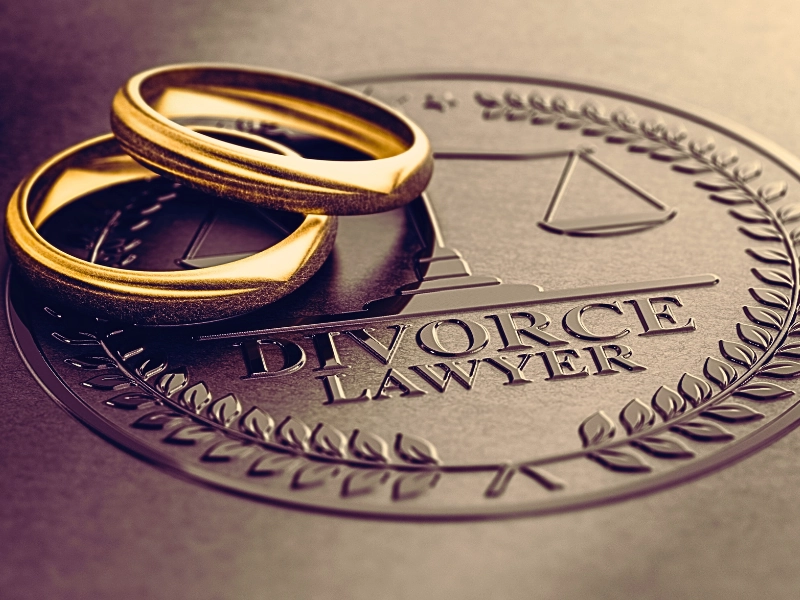How Divorce Can Impact Your Business Ownership and Assets
If your business, or even just a part of it, is marital property, your divorce could have a tremendous impact on it. A judge may award a percentage of the business to your spouse, require a buyout of your spouse’s share, or force the sale of the business, especially if no buyout is possible. These outcomes can be hurtful, particularly if the company is your primary source of income.
Illinois is an equitable distribution state. This means marital property should undergo equitable division in a divorce. Even if you started your business before getting married, your spouse may have some type of ownership interest in it.
When Is a Business Marital Property?
Whether a business is marital property depends on:
- When it was founded: A business you started after getting married is more likely to be considered marital versus nonmarital property.
- Asset commingling: If you and your spouse combined personal and business finances or transferred business ownership between the two of you, this could complicate ownership.
- How the business was funded and supported: If marital funds or your spouse’s labor helped fund or grow operations, the business or the increase in its value could be marital property. This is true even if your spouse helped fund it before getting married.
Strategies to Safeguard Your Company During a Divorce
Business asset division in divorce can be stressful. It may lead to financial strain, especially for small or family-run businesses. Proactive planning may go a long way. If you are about to get married or already married, you can use a step such as a prenuptial or postnuptial agreement to offer peace of mind.
Use a Prenuptial or Postnuptial Agreement
A prenuptial agreement or a postnuptial agreement can offer valuable protection. These agreements give you the opportunity to outline the handling of business assets in a divorce. You can define what is separate and marital property and specify how buyouts or distributions will occur. As long as the spouses make these agreements voluntarily and with full financial disclosure, courts should uphold them.
Offer Other Assets
A spouse may agree to give up ownership shares in a business in exchange for more spousal support, or in exchange for real estate, retirement accounts, or other assets.
Prenups and postnups can outline spousal support terms. Otherwise, couples may prefer to follow state guidelines or negotiate custom agreements. These tailored agreements let you protect your business by giving up assets you might prioritize less.
Keep Finances Separate
It is tricky to argue that your business is nonmarital property if you mixed personal and business finances with your spouse. For strong business owner protection, keep separate bank accounts, avoid using marital funds or assets for business purposes, and document all business-related transactions.
Limit Your Spouse’s Involvement in the Business
The more involved your spouse is in the business, the more likely it is that your spouse has ownership claims. That said, ownership claims can occur even with indirect involvement.
Suppose one spouse owns a consulting business and the other spouse played no formal role in its operation. The nonowner spouse could still have valid ownership claims.
For example, if the court finds that the nonowner spouse made contributions at home that let the business owner focus on growing the company, the court could award the nonowner spouse a figure such as 20% ownership. Indirect support absolutely can translate into successful ownership claims. Still, 20% ownership from indirect support is less than, say, 40% ownership from direct involvement.
Create a Buy-Sell or Shareholder Agreement
A buy-sell agreement with business partners can include clauses restricting transfers of ownership in case of divorce. It might limit your spouse’s claim to voting rights, require you to buy back shares awarded to your spouse, or establish a valuation method to avoid disputes.
Get an Independent Business Valuation
Courts in Glencoe often rely on professional valuations to determine the worth of a business. Among your winning divorce strategies could be making sure your experts distinguish personal goodwill from enterprise goodwill, identify what portion of the value existed before the marriage, and consider seasonal fluctuations, client retention, and other industry-specific realities.
Personal goodwill relates to your individual skills, relationships, or reputation. One example is clients working with you primarily because of your personal expertise or name recognition. Enterprise goodwill includes a business brand, systems, staff, customer base, or location. It is value coming from the business itself, no matter who owns or runs it.
When to Consult a Divorce Attorney in Glencoe
The earlier you talk with a divorce lawyer for business owners, the better position you could be in to protect your business.
Before Filing for Divorce
Thinking about divorce? Now is a good time to meet with a divorce lawyer who understands business valuation, asset protection, and Illinois marital property laws. Your lawyer can help you review agreements such as prenups or business contracts, discuss ways to protect your assets, and avoid expensive mistakes such as transferring your business ownership to a third party. In the latter situation, the court may reverse the transfer.
As Soon As Possible If Your Spouse Files First
If your spouse files first, you should work with a lawyer capable of responding quickly. Considerations may include preventing business disruption, contesting claims to marital equity, and negotiating a settlement that protects your business.
If Your Spouse Refuses to Cooperate
What happens when your spouse won’t sign divorce papers? Given proper service and enough time, the court may proceed with the divorce, anyway. However, an uncooperative spouse can stall the process and hurt your business. A lawyer can request a default judgment and protect your financial interests, especially if your spouse wants to delay the divorce for leverage over your business or shared assets.
During Settlement Negotiations or Trial
A divorce for business owners may require negotiation or litigation involving complicated financial disclosures, forensic accountants, and tax experts. Your attorney can build a case based on accurate business valuations, argue for fair spousal support, and question inflated or false claims from your spouse.
After the Divorce
You may need a lawyer post-divorce to enforce settlement terms, modify spousal support based on business changes, or structure payments to reduce cash flow strain.
A divorce for business owners can include many strategies to protect your business. Contact us today at Silberman Law Group to learn more.





